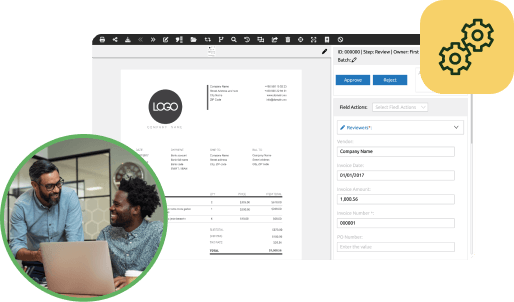
Salim Khalife
Salim Khalife founded Paramount Workplace, now a subsidiary of PairSoft. He currently uses his decades of SaaS experience in the consulting space and is based out of Michigan with his family.
View all posts by Salim KhalifeSalim Khalife • May 5, 2023

NetSuite’s financial management module is the core of the software and is designed to help businesses manage financial operations. The module includes features such as general ledger, accounts payable, accounts receivable, cash management, and financial reporting. Finance teams can use these tools to record and track financial transactions, automate processes, and generate financial statements to chart profitability.
NetSuite’s fixed assets management module provides a centralized platform for tracking fixed assets metrics, including acquisition, depreciation, and disposal. This feature helps finance teams maintain accurate records of assets and ensures compliance with accounting processes. The module also includes asset tracking and management, which allows finance teams to monitor asset locations and usage, helping prevent loss or damage.
NetSuite’s multi-currency management feature is designed to help businesses manage financial transactions in multiple currencies within their ERP system. With this feature, finance teams can enter and process transactions in multiple currencies, perform currency conversion workflows, and generate financial statements in the appropriate currency. This feature is particularly useful for businesses that operate in multiple countries and deal with multiple subsidiaries.
NetSuite’s advanced revenue management feature is designed to help businesses manage complex revenue recognition processes. This feature allows finance teams to automate revenue recognition, calculate deferred revenue, and ensure compliance with accounting standards. The module also includes features such as forecasting, allocation, and billing, which can help finance teams manage revenue streams more effectively.
NetSuite’s budgeting and planning feature is designed to help businesses plan and manage their financial resources effectively. This feature includes tools such as forecasting, scenario planning, and variance analysis, which can help finance teams create budgets, track performance against goals, and adjust financial planning as needed. This feature can be particularly useful for businesses that need to manage cash flow or allocate resources across departments.
In conclusion, NetSuite offers a comprehensive financial management solution that can help finance teams streamline their business needs, reduce errors, and provide valuable insights. The cloud ERP platform’s advanced features such as financial management, fixed assets management, multi-currency management, advanced revenue management, budgeting, and planning enable finance teams to effectively manage complex financial processes, such as revenue recognition and supply chain management, across multiple departments and regions.
By leveraging advanced NetSuite financial management tools, finance teams can gain a deeper understanding of their company’s financial position, make more informed decisions, and ultimately contribute to the success of the business through real-time visibility. With its user-friendly dashboards and robust reporting capabilities, the NetSuite cloud has become a popular choice among finance teams looking to optimize their decision-making and provide a competitive advantage to their organization. As businesses continue to navigate an increasingly complex financial landscape, NetSuite’s accounting and finance tools will likely remain a valuable asset to finance teams looking to improve their business.
Looking to get the most out of your NetSuite setup? Get a demo today on our natively integrated NetSuite solution for AP automation — no extra licenses required.
Get a free demo to learn how our tailored workflows have boosted the AP performance for organizations of all sizes.

